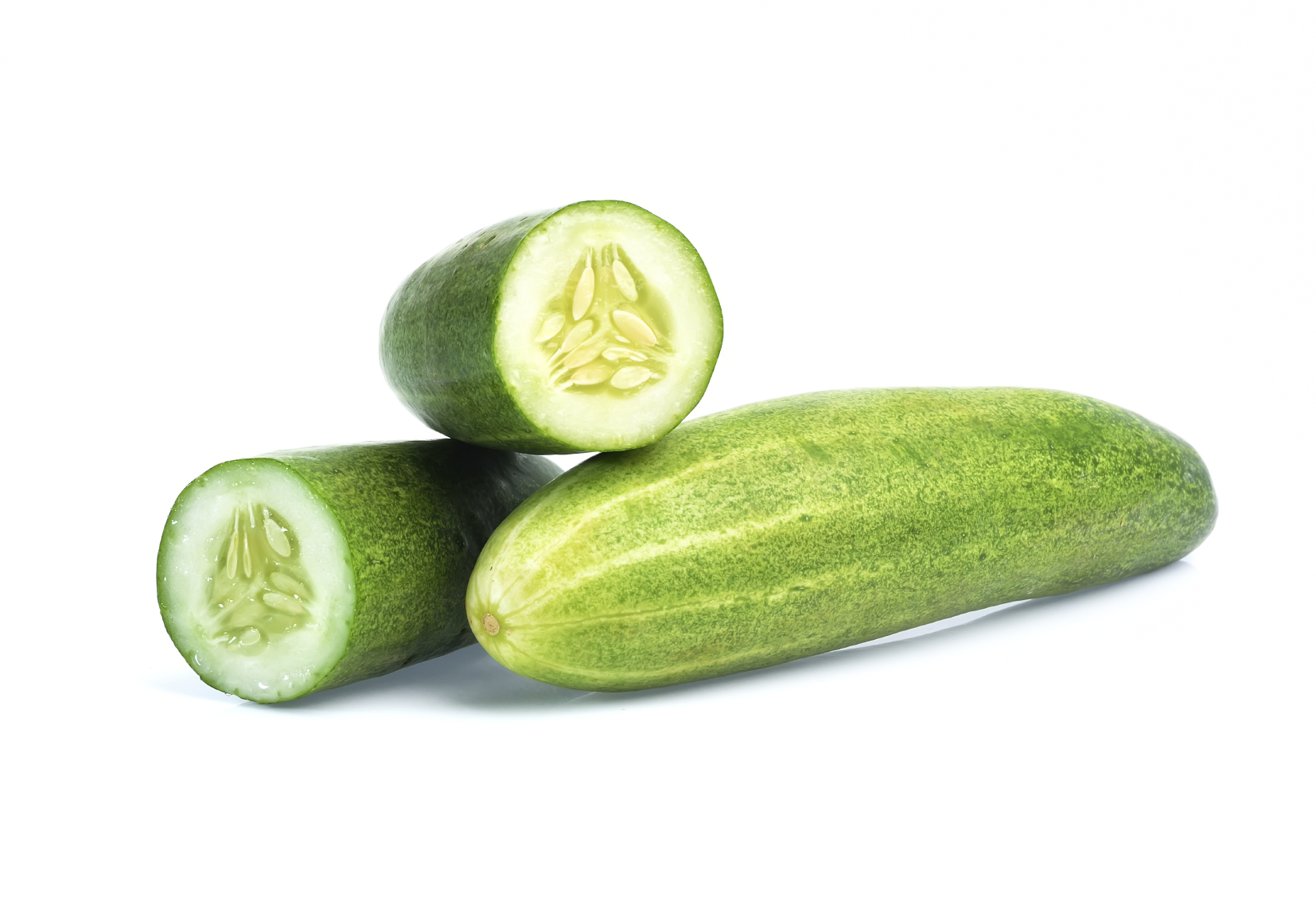Cucumbers are more than just a salad accessory. They’re an easy—and delicious—way to get extra health perks in just about every meal. In fact, they pack serious benefits that can give you a boost from the inside out.
Here are five reasons to eat more cucumber:
1. Fights Cancer: Cucumbers are rich in lignans. Research shows these compounds can help prevent breast, colon, and prostate cancers.1 Cucumber extracts have potent antioxidant and anti-inflammatory power.
The research is still early. But its phytonutrients—like cucurbitacins—and vitamin C content could be responsible. They help prevent enzymes (like COX-2) from creating inflammation that can lead to cancer. In fact, Big Pharma is looking at cucurbitacins as the basis for a new generation of anti-cancer drugs.2
2. Controls Blood Pressure: It may not be a bright, tart berry… But cucumber still contains anthocyanin.3 We’ve told you before that it’s a potent antioxidant for lowering blood pressure. It helps fight oxidative stress that raises blood pressure. And it doesn’t take much of it to be effective.
Eating blueberries once a week helped subjects in one study lower their blood pressure by 10% over 14 years. And a Chinese study found that cucumber vine supplements can reduce blood pressure by up to 81%.4 Adding cucumbers to your salads might not have the same results…but it can give you a similar benefit. Remember that every 200 grams of fruits and vegetables you eat can decrease your stroke risk by over 30%.
3. Hydrates Your Body: It’s one of the most overlooked factors for a healthy immune system…and cucumbers are about 95% water. Hydration may be even more important than nutrient intake for building your body’s defenses.5 That’s because your detoxifying organs—like the kidneys and liver—need water to work. Without it, they won’t flush waste and toxins out of your system. But there’s another factor at play…
Lymph fluid helps get white blood cells and nutrients to different parts of your body. You can’t produce it without enough water.6 Not having enough won’t just stop your body from making it… It can cause the waste it traps to get stuck. This makes you more likely to get sick. And it makes your immune system work harder than it has to.
4. Lowers Blood Sugar: We’ve told you before that eating a high-fiber diet can reduce diabetes risk by 20%. And remember, that study was using inflammatory grains. Cucumber is a better choice because it won’t raise inflammation. It may not pack as much fiber as some other foods we recommend you eat… But it’s a food you can eat at almost every meal. It adds up over time.
Cucumbers are also rich in vitamin K. It’s a vitamin that’s easy to overlook…especially in the standard American diet the average person eats. That’s a shame. Studies show just having adequate levels of this vitamin can reduce your diabetes risk by about 20% over the next 10 years.7
5. Supports Strong Bones: Speaking of vitamin K… It’s one of the most important nutrients you can look for in a multivitamin. One of its most important benefits is building bone strength. It helps make bones denser. Research shows that it can prevent bone loss… But it can also help prevent fractures.8
Research shows this vitamin reduces risk by up to 81% for non-vertebral fractures… It may even help protect postmenopausal women against osteoporosis.9 In fact, women dealing with the disease tend to have lower levels of this vitamin.10
It doesn’t take much to start experiencing the health benefits of cucumbers. Adding them to your salads alone may be enough to start seeing lower blood pressure—and feeling stronger bones. They’re a cheap—and nutrient-dense—solution for adding extra antioxidants.
Like this Article? Forward this article here or Share on Facebook.
References:
1http://www.ncbi.nlm.nih.gov/pubmed/15860433
2http://www.whfoods.com/genpage.php?tname=foodspice&dbid=42
3http://www.ars.usda.gov/SP2UserFiles/Place/80400525/Articles/JAFC54_4069-4075.pdf
4http://www.ncbi.nlm.nih.gov/pubmed/1879030
5http://www.ncbi.nlm.nih.gov/pmc/articles/PMC3660207/
6http://www.fitday.com/fitness-articles/nutrition/healthy-eating/5-immune-system-benefits-of-drinking-water.html#b
7http://www.reuters.com/article/2010/05/27/us-vitamin-k-idUSTRE64Q69420100527
8http://www.ncbi.nlm.nih.gov/pubmed/16801507
9http://lpi.oregonstate.edu/infocenter/vitamins/vitaminK/
10http://umm.edu/health/medical/altmed/supplement/vitamin-k

